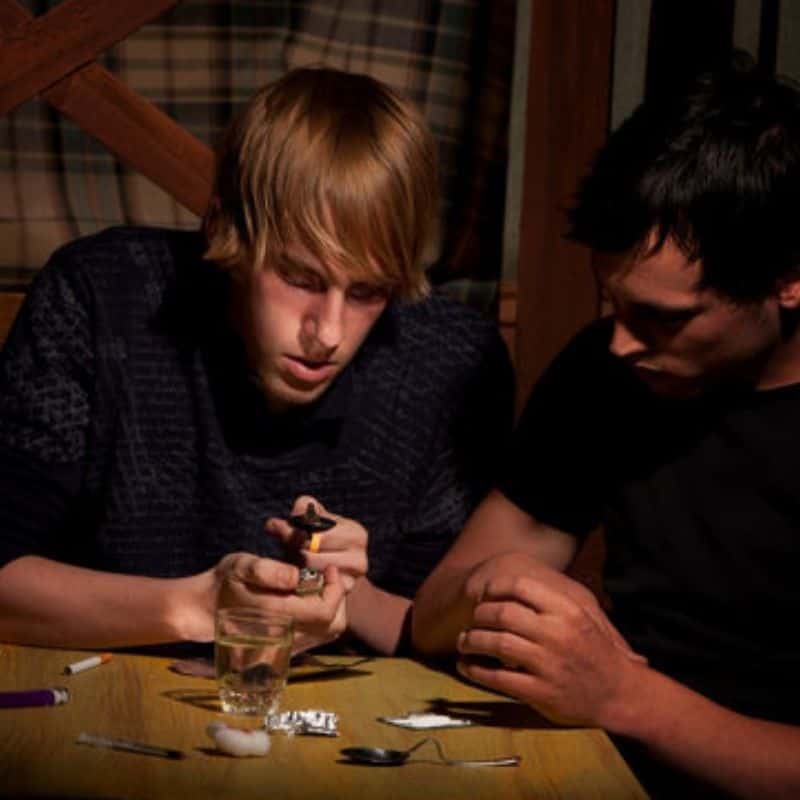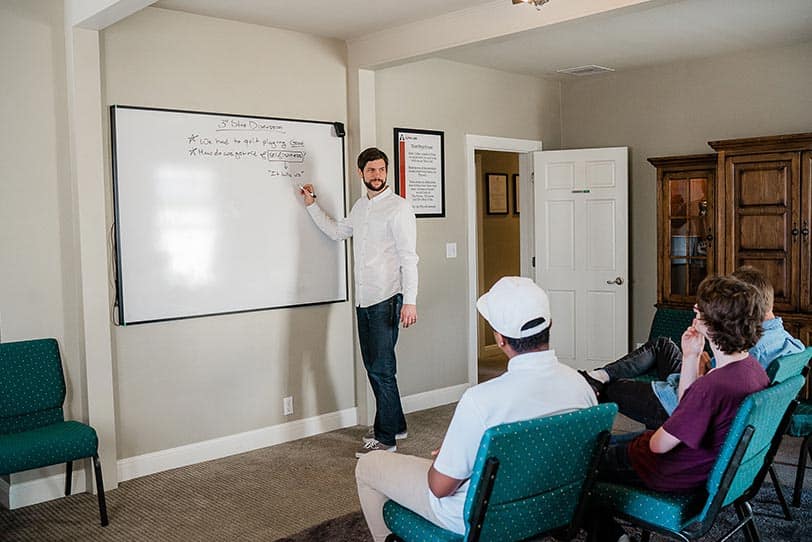Austin Heroin Rehab & Outpatient Treatment Center
Heroin addiction is a widespread and continually growing menace in America. According to a National Survey of Drug Use and Health (NSDUH), close to one million Americans reported using heroin in 2016.
This number is seen to be very high among young adults from all walks of life and backgrounds, reflecting that it can affect anyone, regardless of their social status. Another common trend reveals that most first-time users were introduced by their peers, thus making heroin abuse more prevalent among college students aged 18 to 25 years.
The effects of heroin can be physical, emotional, mental, and financial. For students, it brings about a loss of interest in learning, closed-mindedness, and poor concentration. These effects are often long-lasting and can also impact a user’s family and the society at large.
The good news is, if you or a loved are struggling with heroin addiction, you should not despair. There are ways to manage addiction and to get you back to sober living in Austin, TX.
Read on to find out more about the negative effects of heroin abuse and Alpha 180’s heroin addiction treatment program.

What Is Heroin?
Heroin is a very addictive opiate drug synthesized from morphine, which is a psychoactive ingredient extracted from the opium poppy plant. Heroin is an illegal substance that is produced and distributed as a white or brown powder or, in some cases, as a black sticky substance called black tar. The look and color changes, depending on how it is manufactured and what other substances it is combined with.
Heroin belongs to a class of drugs called opioids, which are known to induce a significant high or pleasant cognitive effect. Prescription pain medicines such as codeine, hydrocodone, and oxycodone also belong to this class of substances.
All opioids work in a similar way and produce similar effects. A recent study suggests that almost 80% of heroin users eventually switch to prescription opioids. The use of these opioids may lead to overdose and addiction.
How Heroin Is Used and Abused
People use heroin alone or sometimes mix or cut it with other substances like baby powder. Some people opt to mix it with other drugs, like alcohol, or speedball heroin by combining it with cocaine or methamphetamine. This is very dangerous, and it increases the risk of overdose. Others sniff, snort, smoke, or inject it intravenously.
Heroin is a depressant drug. However, it is used, it gets to the brain very fast and activates opioid receptors in the brain and in other parts of the body. This produces a euphoric experience that involves slowing down a person’s brain function. Users report feelings of pleasure, and it is common for one’s blood pressure and body temperature to drop and heartbeat to become irregular. All these effects are as a result of the surge in dopamine levels in the brain, which contributes to addiction by making users desire more of the drug and crave the experience again and again.
The Symptoms of Heroin Abuse
The use of heroin causes noticeable long-term behavioral changes in individuals. With a keen eye, people close to you can notice these changes or symptoms. Common signs may include an inability to manage use, persistent heroin cravings, adverse withdrawal symptoms, and continued use despite negative consequences.
These symptoms are discussed below to help you understand them better and to ensure that you easily identify them in yourself or a loved one:
Heroin tolerance – Refers to the ability of the body to adjust to having a certain amount of the opioid present at all times. As the body’s tolerance levels increase, the user requires more heroin doses at increasingly frequent rates to acquire the same high they experienced the first time. Tolerance often leads to opioid dependence or addiction.
Heroin dependence – It occurs when users start feeling like they cannot function normally without the drug. It is a manifestation of brain changes caused by chronic heroin use. The repeated use of the drug makes the brain function less or more normally with the drug and abnormally when sober. Users who have persistent heroin cravings find it difficult to stop despite experiencing hostile effects, and they experience unpleasant symptoms of withdrawal.
Heroin withdrawal – These are negative and uncomfortable side effects that heroin addicts experience when they try to discontinue their use suddenly. The symptoms can set in a few hours after a person discontinues chronic abuse and may include diarrhea, vomiting, sweating, cravings, crying, mood swings, chills, achy bones, and muscles. These symptoms tempt a user to continue using heroin as a way to suppress the unpleasant effects.
Overdose – It is among the most dangerous effects of heroin use. Tolerance and dependence, leading to ever-increasing doses of heroin, increase the risk of overdose. An overdose produces life-threatening effects or can be fatal. Some symptoms of heroin overdose include convulsions, loud snoring, comas, slowed breathing, blue fingernails, and lips. An overdose is a medical emergency that requires you to get the victim medical attention fast.
Heroin use disorders and symptoms like the ones mentioned above are treatable. You only require proper treatment, attention, and support that is adapted to your individual needs.
Statistics of Heroin Abuse in America
23% of all people who try heroin become addicted. Heroin overdose levels have increased sevenfold in the last decade.
However, The Centre of Disease Control reported that in 2018, about 15,000 people overdosed on heroin, which was a 4% decrease from 2017.
Approximately 3.6 million adults have received some kind of substance abuse treatment through medication, support groups, or counselling.
Treatment Options for Heroin Abuse
Heroin addicts can get treatment and support from heroin addiction rehab programs and treatment centers that offer various therapeutic options. Some of the best rehabilitation programs offer both inpatient and outpatient treatment settings and therapy sessions for individuals, families, and peers.
Outpatient addiction treatment facilities provide education, various forms of therapy, access to mental health care, and medical addiction treatment. Outpatient is designed for anyone struggling with addiction, especially those who are not well-suited by inpatient rehab. It offers flexibility and helps addicts practice to stay sober under real-life conditions. Inpatient treatment, on the other hand, provides heroin addicts with 24-hour support and supervised detoxification to reduce the risk of relapse.
What to Expect in a Heroin Rehab
Heroin detox program – Heroin detox involves relieving an addict’s body of the undesired withdrawal symptoms experienced when use is stopped. When done under medical supervision, detox ensures that the transition is safe and comfortable.
Inpatient Rehabilitation – What most think of when they hear the word, “rehab,” inpatient rehabilitation centers provide all-day programming, as well as residence. Participants reside at the facility for a period of time and receive individual, group, and experiential therapies to begin their recovery process.
Ongoing care and support – Aftercare helps heroin addicts stay on track after treatment is complete. It involves working with your expert counselor to come up with an aftercare plan that encompasses 12-step meetings, personal therapy, sober-living housing, and developing a sober community of peers.
How to Prevent and Avoid Heroin Relapse
Relapse is a common part of the addiction recovery journey that does not necessarily point at failure of treatment. However, it may mean that a change to, modification to, or resumption of treatment is required. Aftercare is especially important to avoid heroin relapse, which may be triggered by stress, coercion, temptation, or powerful heroin cravings. Generally, a person without sufficient support is at a higher risk of relapse than one with ample support.
The best way to avoid relapse is by following these principles:
- Seek aftercare and support
- Seek outpatient treatment
- Identify triggers of heroin relapse
- Recognize the signs of heroin relapse
- Develop and continually update relapse management strategies
- Have accountability partners who are aware of your plans to remain heroin-free
- Keep away from situations where heroin is being used
In Americans who suffer from depression and anxiety, 20% also struggle with substance abuse disorders. This goes to show that mental health and substance abuse disorders are often intertwined. Drug use aggravates mental disorders for those already predisposed, and people often use drugs to cope with the negative feelings induced by mental issues. Such people must make deliberate efforts to avoid relapse by staying sober, improving self-efficacy, and being strong willed.
Alpha 180 Helps with Heroin Addiction
Alpha 180 is an addiction-free lifestyle support program that is located in close proximity to Austin Community College, The University of Texas at Austin and other major colleges and universities in the area. It is a suitable program for current or aspiring sober male students because it strives to ensure that their recoveries are smooth and not lonely.
Alpha 180 is a community of like-minded brothers who share a purpose and who are driven by unity. We walk the journey to recovery with these students, and we ensure that they successfully pursue their professional and academic goals. At Alpha 180, we offer students various services and amenities, including:
- Sober Clubhouse – Recovery doesn’t have to be boring or lonely. That is why we have our Sober Clubhouse, which is the perfect hangout spot for students in recovery. We have oversized couches, perfect for reading or lounging during the day, and a full-fit kitchen. Students enjoy studying in the Clubhouse, fellowshipping, interacting with their fellows, and meeting their recovery sponsors.
- Clinical Services – The Sober Clubhouse is located close to the offices of the University of Texas, so, support is just a walk away. With family and individual therapy, group meetings, and an Intensive Outpatient Program (IOP), we have multiple methods for addiction treatment. We also have professional clinicians who provide the students with emotional and life skill support to help them strike a good balance between school and education.
- Life Skills Development – Our ARS program seeks to enable students to accomplish their most pressing goals at every stage of recovery. We offer support through emotional regulation, identification of suitable learning styles, resume writing, job sourcing, assignment completion, and executive functioning.
- Transitional Living – A sense of community is crucial in early recovery. That is why we saw it fit to offer abstinence-based sober housing for these young men in recovery. Our sober living residence ensures the students make mutually beneficial friendships based on their common goals and interests.
Alpha 180 is a great community that can help you or someone you love to recover from addiction. Get in touch with our team today!

